Yemen calls UN chief’s remarks over execution of assassins 'politically motivated'
A senior official of Yemen’s Supreme Political Council has dismissed remarks made by the UN secretary-general in response to the execution of nine men accused of killing a senior Yemeni leader in 2018.
Taking strong umbrage at a statement from Antonio Guterres, Mohammed Ali al-Houthi called it “politically motivated”.
Al-Houthi, who heads the resistance movement’s supreme revolutionary committee, said the execution of the nine men accused in the assassination of Saleh al-Samad, the former head of Yemen’s Supreme Political Council, followed the due process of law.
He said the UN chief’s statement came at the behest of “aggressor countries”, because of their “close connection” with the diabolical crime, accusing them of “financing and planning it”.
Stephane Dujarric, a spokesperson for the UN chief, had earlier quoted Guterres as saying in a statement that the trial did not meet “the requirements of fair trial and due process”.
Dujarric further said the secretary general “deeply regrets” the executions.
Al-Samad, accompanied by at least six escorts, was killed in an airstrike by the Saudi-led military coalition during his visit to the coastal city of Hudaydah on April 23, 2018.
He was the highest-ranking member of the Ansarullah resistance movement to be killed by the coalition.
Yemen’s government announced that the nine men were charged and convicted for their complicity in the crime, including spying and sharing sensitive information with the Saudi-led coalition.
They were sentenced to death by a criminal court in Hudaydah, and executed publicly on Saturday in the capital Sana’a.
Yemen’s state-run al-Masira network said the video of their confessions would be released soon.
Saudi’s continued aggression
Meanwhile, Dujarric conveyed Guterres's concerns over unrelenting aerial bombardment by the Saudi-led military coalition in Yemen, which resulted in the killing of several civilians in Shabwah on Saturday.
"The Secretary-General is also concerned about a reported airstrike by the Saudi-led Coalition in Shabwa that allegedly killed at least six civilians from the same family. He reiterates that directing attacks against civilians and civilian infrastructure is prohibited by international humanitarian law,"Dujarric said in a statement.
According to Yemen's state news agency SABA, the car belonged to Mohammed Hussein Ahmed Laswadi, a resident of Markha district in Shabwah province, who was killed along with six other members of his family, including a woman and three children.
It was the latest Saudi-led airstrike against the impoverished nation that has been beset by violence and foreign aggression since March 2015.
“Aggressors have failed”
Mahdi al-Mashat, who heads Yemen’s Supreme Political Council, said the desperate attempts made by the aggressors to crush the forces of resistance have “failed”.
Al-Masira quoted him as saying that the US is “the main culprit” in the aggression against Yemen, with other countries acting as its “executive tools”.
Mashat asserted that the people of Yemen are being punished for their unflinching and unwavering commitment to the cause of Palestine, which he said is “one of the priorities of the Yemeni revolution”.
Al-Mashat also denounced the UN for its support for the Saudi-led coalition, while questioning Saudi Arabia’s intent on reaching a peaceful settlement with the Yemeni resistance forces.
He referred to the war in Ma’rib as “strategically important”, as Yemeni army and allied fighters continue to make gains in the oil-rich province against foreign-backed mercenaries.
Brigadier General Yahya Sare'e, a spokesman for the Yemeni Armed Forces, at a press conference on Friday, said the Yemeni army and allied Popular Committees had managed to liberate an area of 1,600 square kilometers in the province, while neutralizing thousands of mercenaries.
Saudi Arabia, backed by the US and its Arab allies, launched the devastating war on Yemen in March 2015, with an aim of re-installing the unpopular regime of former Yemeni president Abd Rabbuh Mansur Hadi and crushing the popular Ansarullah resistance movement.
The war has killed hundreds of thousands of Yemenis, and displaced millions more. It has also destroyed Yemen’s infrastructure and spread famine and infectious diseases.
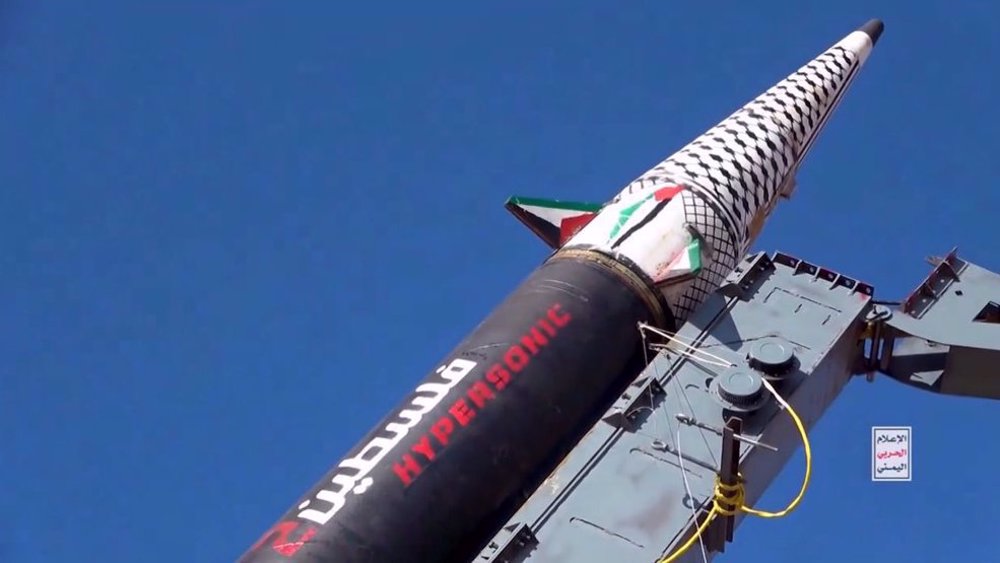
Missiles fired from Yemen triggers sirens in Israeli-occupied territories, closes airport
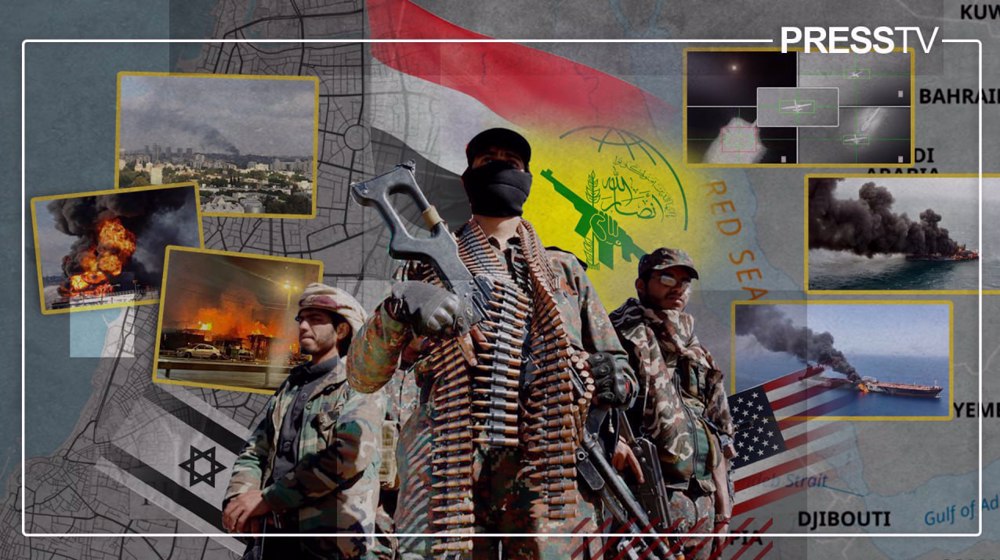
Eye for an eye: Yemen upends US-UK-Israeli war plots, stands unshaken with Gaza
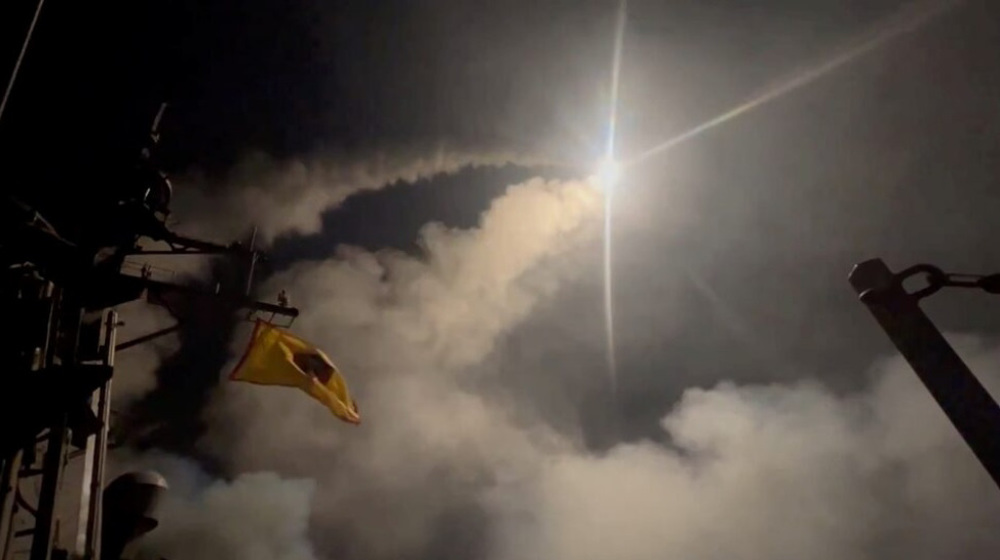
US airstrikes target key educational, training center in Yemen
Israeli settler attacks, displacements increase in the occupied West Bank: OCHA
Protesters gather in Times Square demanding release of Mahmoud Khalil
Yale's decision to terminate Dr. Helyeh Doutaghi aimed to silence anti-genocide voices: Activists
Iran’s aluminum output down by nearly 5% in year to March
Missiles fired from Yemen triggers sirens in Israeli-occupied territories, closes airport
Iran condemns terror attack in southeast that killed 8 Pakistani nationals
Deir al-Balah massacre: Israeli airstrikes killed 6 brothers at once
Iran currency surges on positive news from Iran-US talks


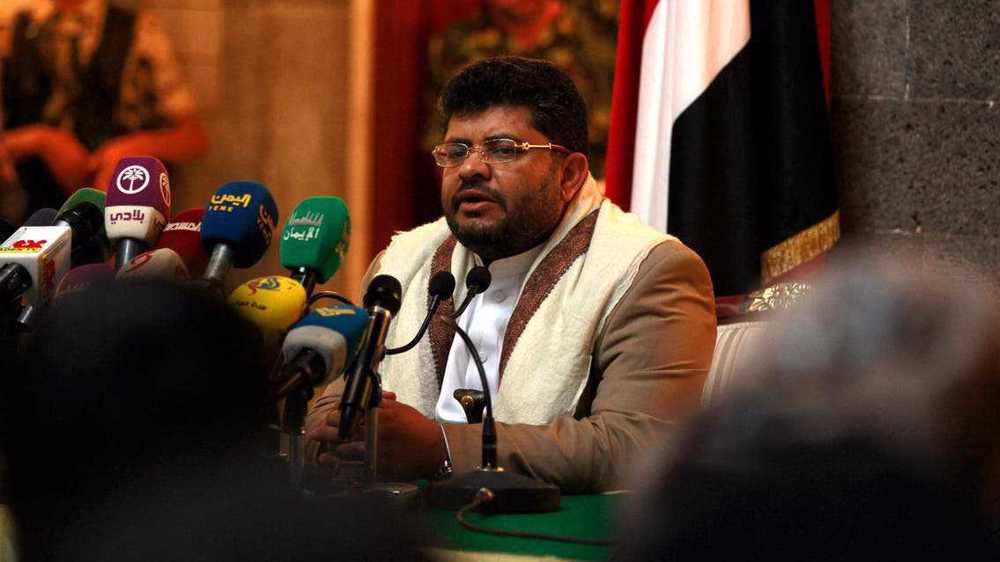
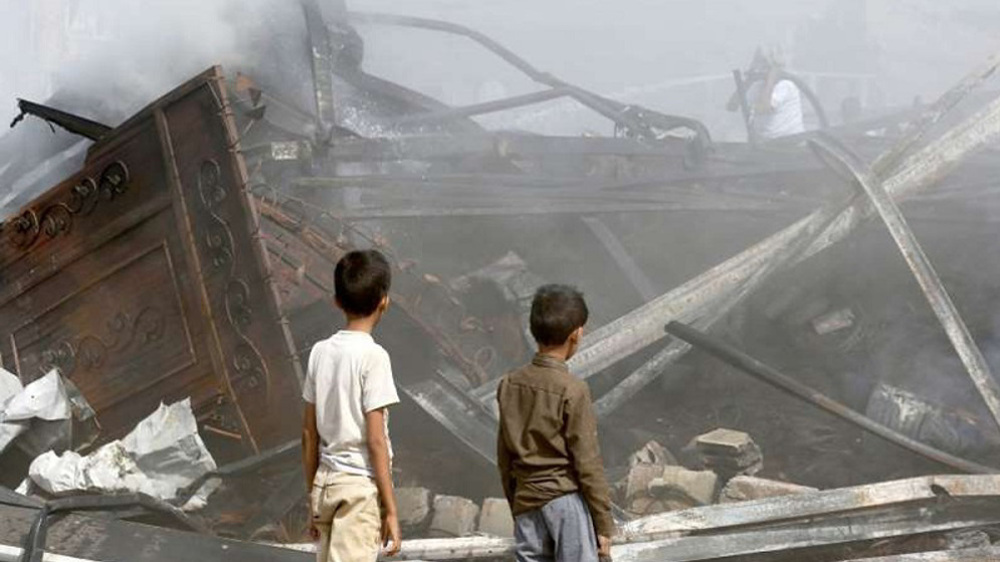
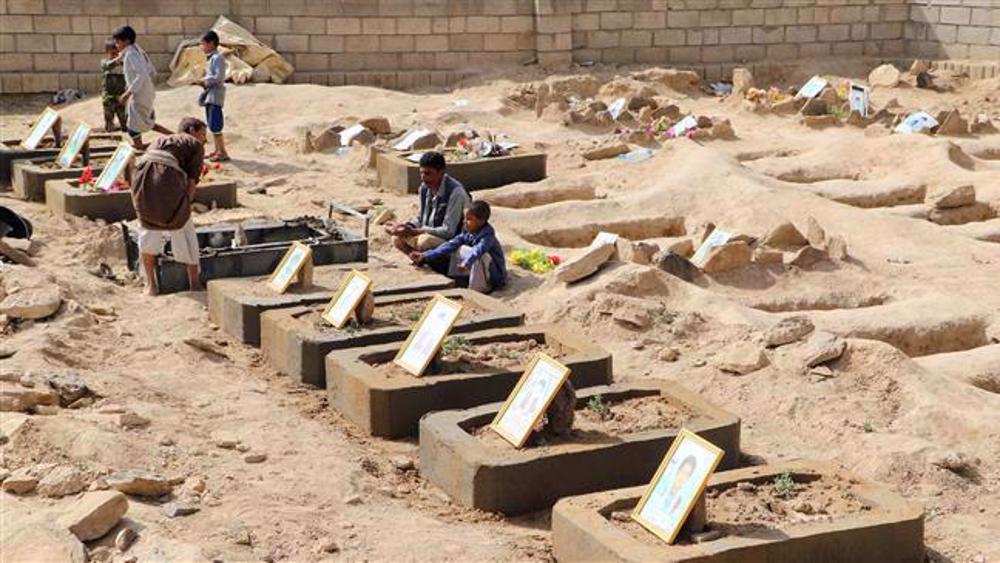
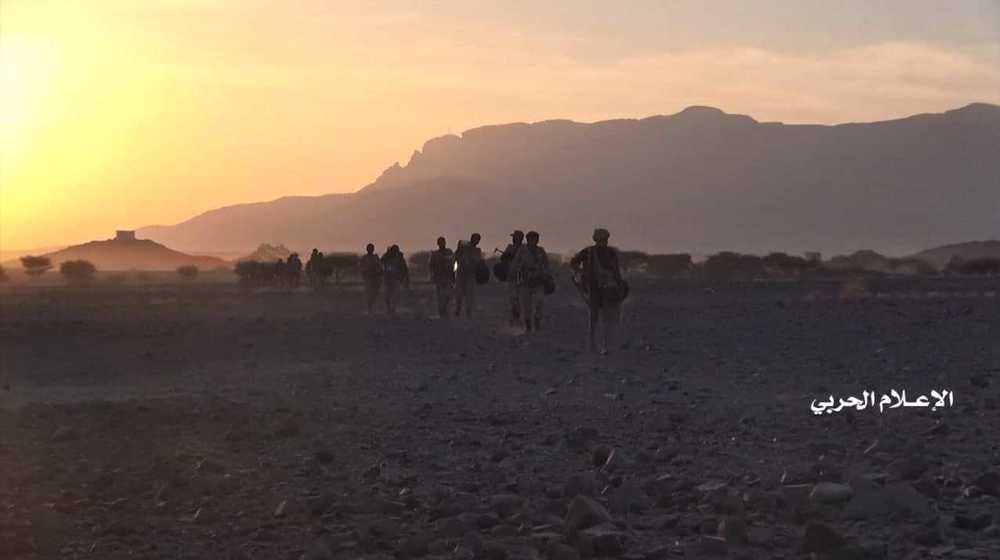



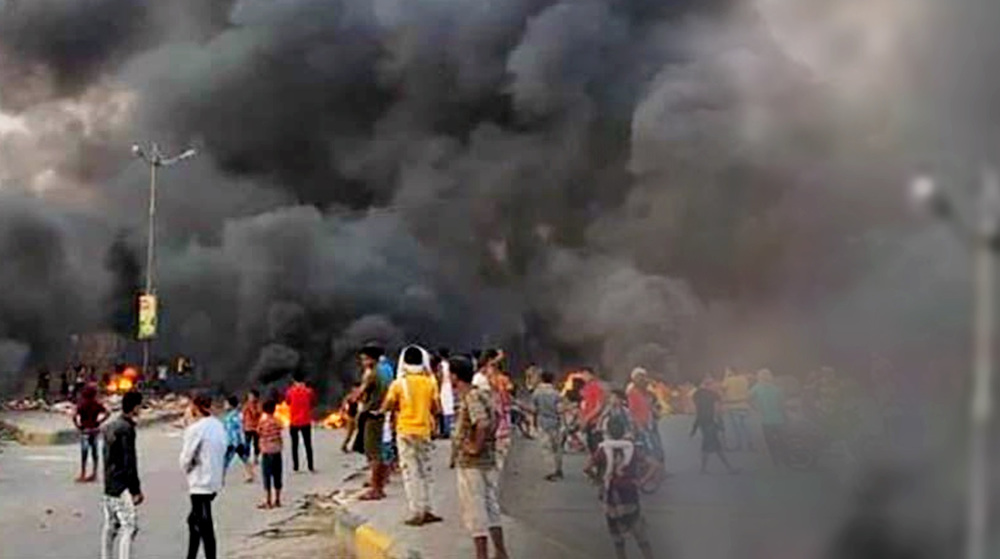
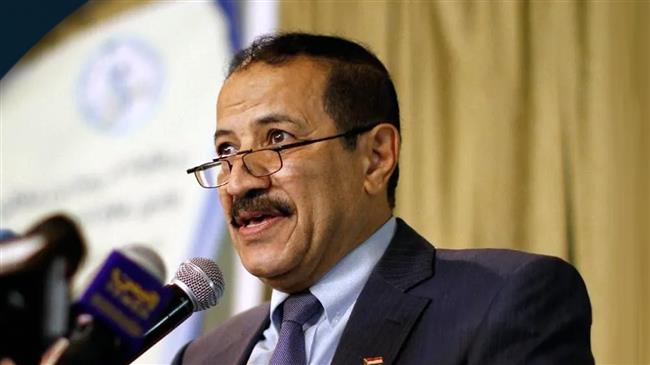

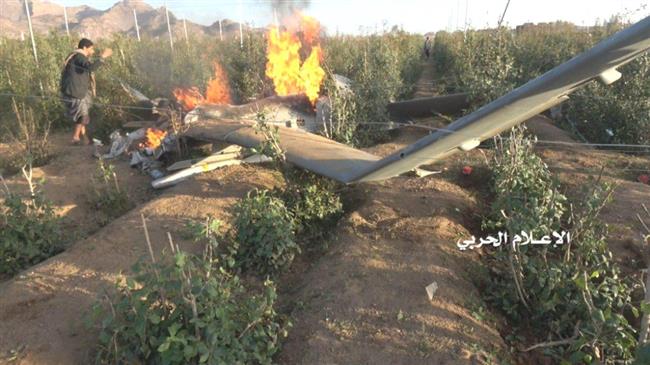

 This makes it easy to access the Press TV website
This makes it easy to access the Press TV website